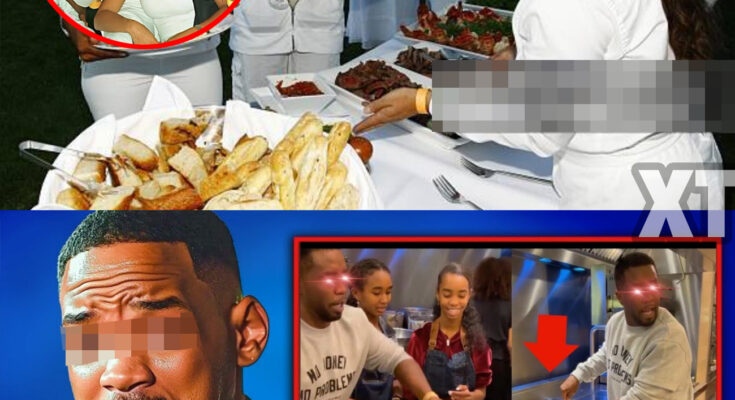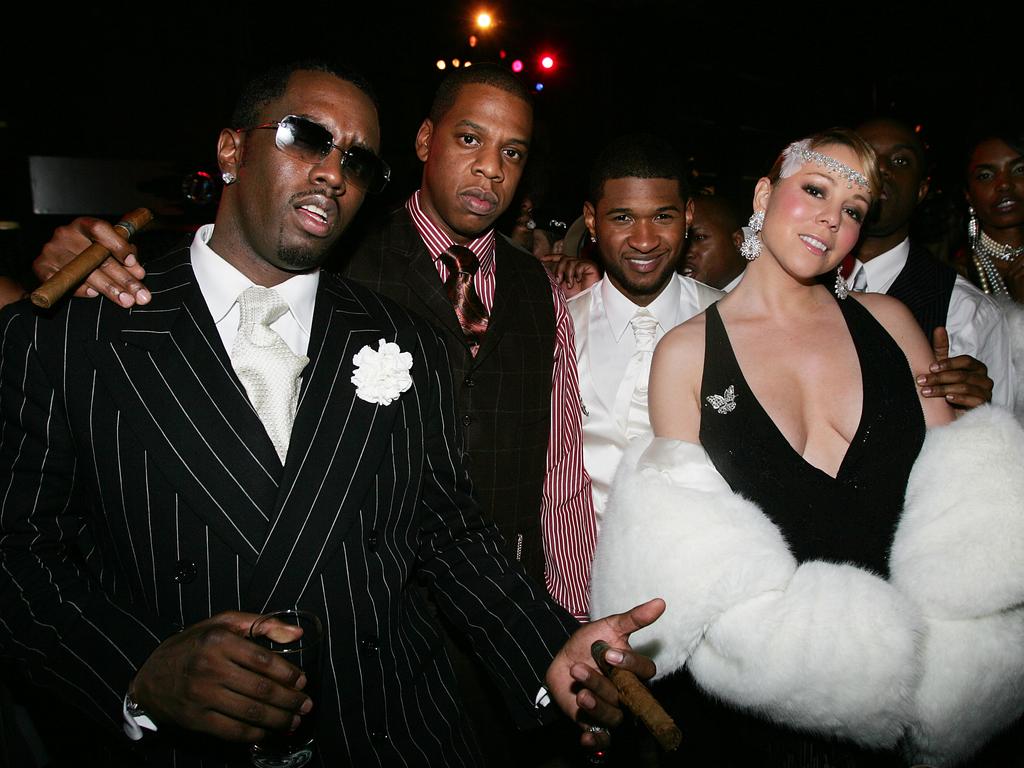When we talk about the ages of the victims when the conduct occurred, it’s shocking. Our youngest victim at the time of the occurrence was 9 years old. We have an individual who was 14 years old, and one who was 15. Twenty-five of the 120 individuals who are plaintiffs in these cases were minors at the time of the acts complained of. The time frame of the acts complained of is very wide; the conduct in question spans from the years 1991 all the way till this year, 2024.
If you wonder why there are so many alleged victims, that’s your answer. We’re talking about more than 25 years of this type of conduct. Now, although most of the victims who have stepped forward were victimized after 2015, this has been going on for a very long time.
Have you ever carried the weight of an experience you couldn’t fully explain? Something that stays with you no matter how much time passes? For me, that burden comes from a job I once believed was the chance of a lifetime. I worked as a chef, and one day, I landed a gig preparing meals for a world-famous figure—Diddy.
At first, it felt like a dream. I would be part of his exclusive events, surrounded by celebrities and the kind of opulence most people only see on TV. But what seemed like a golden opportunity became something far darker, something I’ll never forget. Working in fine dining exposes you to the quirks of the rich and powerful. They demand the impossible, like rare ingredients sourced from remote regions or meals served on custom-made plates shipped in from Europe. So when I started at Diddy’s estate, I thought I was ready for anything. But what I found there was unlike anything I’d ever encountered.
My first day on the job seemed ordinary enough, at least at first. I was tasked with helping prepare the extravagant meals his parties were known for—the kind of food designed to impress. Everything about the house radiated luxury, from the marble floors to the meticulously curated décor. But one rule stood out above the rest. A member of the staff pulled me aside, pointed to a plain, unassuming door at the far end of the kitchen, and said in a low voice, “Under no circumstances are you to open that door. Stay away from it.”
I almost laughed, thinking it was a joke. It sounded ridiculous. Why would a door in a kitchen warrant such a stern warning? But the seriousness in their voice, and the way their eyes darted toward the camera mounted above the door, made it clear they weren’t kidding. That tiny blinking red light unnerved me. No other part of the kitchen was monitored—just that one spot. It felt like the door itself was holding a secret, and I was suddenly part of something much bigger than I’d signed up for.
I tried to ignore it. My job was simple: cook, stay out of trouble, and collect my paycheck. But the forbidden door gnawed at the back of my mind. The longer I worked there, the more its presence became an itch I couldn’t scratch. What was so important that it required constant surveillance? I told myself it wasn’t my concern, but deep down, I knew better.
The night I couldn’t ignore it anymore came during one of Diddy’s infamous parties. The mansion was buzzing with activity. Guests dressed in pristine white, champagne flowing freely, and music booming through the halls. The kitchen was chaotic, with trays of food constantly going out and new orders coming in.
In the middle of the chaos, I saw her. She was young, her hair tangled, and her clothes didn’t fit the pristine image of the partygoers. Her movements were frantic as she grabbed a piece of bread from the counter. I froze, unsure what to do. Then she darted toward the door—the one we were told to avoid. Before I could say a word, she slipped through it, disappearing without a sound.
I stood there stunned. Who was she? Why was she in the kitchen? And more importantly, why had she gone through that door? A part of me wanted to follow, but the warnings echoed in my mind. I stayed where I was, trying to shake the unease that had settled over me.

After that night, I couldn’t stop thinking about her. Every time I worked another event, I found myself glancing at the door, half-expecting her to appear again. But it wasn’t just her that bothered me—it was the whole atmosphere of the house. The longer I worked there, the more I noticed things that didn’t add up. Security guards stationed in odd places, areas of the house that were strictly off-limits—even to the most high-profile guests.
One night, while clearing dishes, I stumbled upon a notebook left carelessly on a counter. Its pages were filled with names, dates, and strange symbols. Before I could make sense of it, a security guard appeared, snatched it away, and shot me a warning look. It was clear I had seen something I wasn’t supposed to, and the fear in his eyes told me to let it go.
The final straw came on a quiet night, toward the end of one event. Most of the staff had left, and I was alone in the kitchen cleaning up. That’s when I heard it—a muffled scream, faint but unmistakable, coming from behind the door. My heart pounded as I stood frozen, straining to hear more. Then came the knocking—soft at first, then louder, more urgent.
I wasn’t the only one who heard it. Another chef looked at me, his face pale and uneasy. “You heard that, didn’t you?” he whispered. I nodded, unsure what to say. Before we could even think about investigating, a security guard entered, his expression cold and unyielding. “You’re done for the night,” he said firmly. We didn’t argue. We grabbed our things and left, the fear still gripping us.
I never went back to the mansion after that. I told myself I needed a break, that I could find work elsewhere, but the truth is, I was scared. The memories of that house, of the girl, of the noises behind the door, stayed with me. I couldn’t shake the feeling that I had narrowly avoided something terrible.

Months later, I bumped into another former staff member at a coffee shop. He looked like he hadn’t slept in weeks, his face gaunt, and his eyes haunted. We exchanged pleasantries, but then he leaned in close and asked, “Did you ever hear it? The sounds behind the door?”
I nodded, and his face went even paler. “You were lucky to get out,” he said quietly. “Not everyone does.” He left before I could ask more, leaving me with even more questions than answers.
I’ve tried to forget, to move on, but the memories won’t let me. Sometimes I dream about that house, the girl, the door. In the dreams, the door opens, and what’s behind it is always different. Sometimes it’s darkness, sometimes it’s the girl, her eyes pleading for help, and sometimes it’s worse.
I’ve considered speaking out, telling someone everything I saw and heard, but who would believe me? And even if they did, what could they do? Diddy’s influence is vast, and the world he operates in doesn’t take kindly to people poking around where they don’t belong. Staying silent feels like the safest option, but it also feels like a betrayal of the truth.
Even now, years later, I still think about that house and the secrets it holds. I wonder what became of the girl, if she ever found a way out or if she’s still trapped there, part of something far darker than I can comprehend. And I wonder if the door was ever meant to keep people out or to keep something in.
Whatever the truth is, I know one thing for certain: that house wasn’t just a home. It was a place of shadows, a place where silence and secrecy thrived. Some nights, when I’m alone with my thoughts, I can still hear the knocking. And I wonder, what if I had opened that door?

The more I think about that house, the more I realize how little I truly understood what was happening there. It wasn’t just the door, or the girl, or the strange rules. It was the whole atmosphere. There was a tension that hung in the air, a sense that everyone was walking on eggshells. Even the guests, draped in designer clothing and dripping in jewels, seemed uneasy if they ventured too far from the main event.
I started to notice how tightly controlled everything was—from where people were allowed to wander to how conversation seemed to cut off when certain staff members passed by. There was one guest, an older man in a sharp suit, who wandered into the kitchen during one of the parties. He looked out of place, his face drawn, his eyes darting nervously as if he was trying to avoid being seen. He asked for a glass of water, but the way his hands trembled as he took the glass told me he wasn’t just thirsty.
Before I could ask if he was okay, a security guard appeared, his movement swift and deliberate. Without saying a word, he escorted the man out of the kitchen. The look the guest gave me before he left stuck with me—fear mixed with resignation, like he knew something I didn’t but was powerless to act on it.
It wasn’t just the guests who seemed on edge. The other staff members, particularly the longtime employees, carried an air of quiet dread. They avoided the door entirely, never so much as glancing in its direction. I once tried to ask one of them about it, a sous chef who had been working there far longer than I had. His face immediately darkened, and he muttered something under his breath before walking away. After that, he avoided me completely.
But the thing that haunted me most wasn’t the staff or the guests. It was the girl. I couldn’t stop replaying the moment she ran through the kitchen, clutching that piece of bread. Her eyes filled with panic—she didn’t belong there, not among the glamour and extravagance of those parties. And yet, no one else seemed to notice her. It was like she was a ghost, moving through the mansion unnoticed. Her presence erased the moment she disappeared behind that door.
The more I thought about her, the more questions plagued me. Was she hiding from someone? Or worse, was she being held there against her will? The scream I’d heard that night, muffled but unmistakable, played over and over in my mind. It wasn’t just a sound. It was a cry for help—raw and desperate—and I had done nothing.
I began to piece together fragments of what I’d seen and heard, trying to make sense of it all—the locked freezer, the cryptic notebook, the staff’s fear, the off-limits areas of the house. They weren’t just random details. They were part of something larger, something darker. But every time I tried to connect the dots, I found myself hitting a wall. The truth felt just out of reach, like a shadow I couldn’t quite catch.

One night, months after I’d stopped working there, I found myself sitting in my car a few blocks from the mansion. I hadn’t planned to go back. I didn’t even know why I was there, but something had drawn me—a nagging feeling that there was more to uncover. I sat there for hours, watching the faint glow of lights from the house, the occasional shadow moving behind the curtains. At one point, I thought I saw someone standing at the gate, watching me. But when I blinked, they were gone.
I knew I couldn’t go back. The fear was too great, and the risks were too high. But the questions continued to haunt me. Who was the girl? Why was the house so heavily guarded? And what was behind that door?
One detail I almost forgot came rushing back to me. One night, during one of the parties, I overheard a fragment of a conversation between two guests. They were talking about the house, joking about how even the walls had secrets. One of them laughed, but the other didn’t. Instead, he lowered his voice and said, “This place isn’t what it seems. You just have to know where not to look.”
At the time, I thought it was just idle gossip—the kind of thing people say when they’ve had too much to drink. But now I’m not so sure.
I’ve thought about going to the authorities, about telling someone everything I know. But every time I consider it, I remember the look in that security guard’s eyes, the quiet warning in his expression, and I remember the power Diddy holds. The kind of power that can make problems disappear. Speaking out feels like stepping into a storm, and I’m not sure I’m ready for the fallout.
Even now, years later, the memories linger. They come back in flashes—the faint knocking sound when the house is quiet, the image of the girl’s terrified eyes, the suffocating silence that followed the scream. I try to push them away, to tell myself it’s in the past. But deep down, I know the past isn’t done with me.
Some nights, when I’m lying in bed, I hear the knocking again. It’s faint, almost imperceptible, but it’s there. And every time I wonder: Was it just a door, or was it something more? A warning, perhaps, of what happens when you get too close to the truth.
Whatever the answer is, one thing is clear: some doors are meant to stay closed, and some secrets are better left buried. Even now, I ask myself: What would I have found if I had opened that door? Would it have answered my questions, or would it have sealed my fate?
The longer I think about it, the more I realize that the not-knowing is almost worse than the truth could ever be. The door became a symbol in my mind—a reminder of all the things that are hidden in plain sight, all the secrets that are protected by power and fear.
The fear, though, was real. It wasn’t just mine. I saw it in the eyes of the other staff, the way they avoided certain areas of the mansion or spoke in hushed tones when they thought no one was listening. Even the security guards who acted so confident and untouchable seemed uneasy whenever the subject of the door came up.
It was as if they were all part of a silent agreement: Don’t ask, don’t look, don’t challenge the rules. And if you’re lucky, you’ll get to walk away.
In that house, people didn’t just come and go. They disappeared, in a way that felt deliberate. Staff members who asked too many questions or got too close to the truth were suddenly no longer available. It was as if the house had a way of swallowing people whole, erasing their presence like they were never there to begin with.
The girl still haunts me. Her wide, desperate eyes, the way she moved like a cornered animal—those images are burned into my mind. I can’t stop wondering who she was and why she was there. Was she a guest who had stumbled into something she wasn’t supposed to see? A runaway who had found herself in the wrong place at the wrong time? Or was she part of something darker, something I couldn’t even begin to understand?
I’ve tried to piece it all together—the girl, the notebook, the freezer, the noises—but every time I think I’m close to making sense of it, the pieces fall apart. There are too many gaps, too many unanswered questions, and the mansion itself looms in my mind like a spectre, its shadows stretching far beyond its walls.
I can’t help but feel like I was only scratching the surface of something much bigger—something designed to stay hidden.
There was one more encounter that has stuck with me, one I haven’t shared with anyone until now. It happened a few weeks after I stopped working there. I was at a bar, trying to unwind and forget everything when I overheard a conversation




